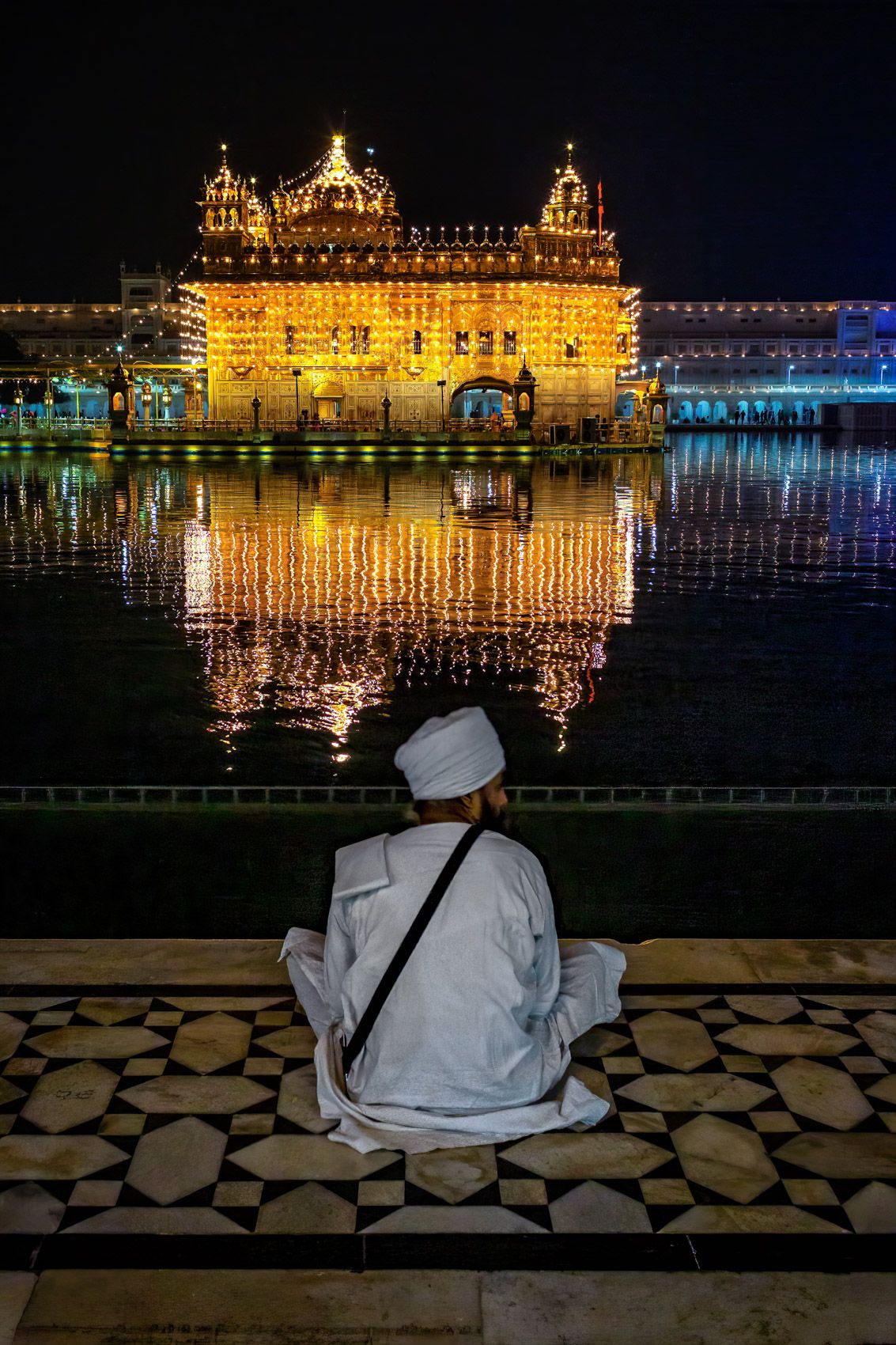The Sikh Way at the Golden Temple
Sikhism is one of the youngest of the world’s major religions, having emerged in Punjab in the late fifteenth century, out of roots in the devotional Bakhti movement of Vaishnavite Hinduism and also possibly containing elements from Sufi Islam. Its earliests adherents were Hindu and Muslim converts. The spiritual teachings of Guru Nanak, the first Sikh guru, emphasized leading an active, creative and practical life of truthfulness, self-control, justice and service to others. Sikhism rejects the notion that any religion has an exclusive claim on Absolute Truth and eschews a priesthood. The overwhelming majority of India’s Sikhs are Punjabis, and they constitute only a small minority of Indians. However, there is also a well established, large and thriving Sikh diaspora, with a significant presence in Canada, the US, and UK. Fully initiated male Sikhs always wear five items, including uncut hair, a small wooden comb, a circular steel or iron bracelet, a sword or dagger, and a special undergarment. Some of these can be seen in the portraits here.
With the exception of three portraits taken at the Gurdwara Sri Guru Sis Ganj Sahib in Old Delhi, the images here were taken at the Golden Temple in Amritsar, Punjab, the spiritual center of Sikhism. The original temple and pool were built in the late sixteenth century and was repeatedly destroyed by Muslim forces and then rebuilt, achieving its current form in the early nineteenth century, when it was covered with gold foil—thus its current popular name. The temple (gurdwara) is visited by vast numbers of devotees day and night, and also by Indian Hindus and Muslims, as well as foreign tourists. It is open to all for prayer and meditation; and everyone is welcome to participate in the fundamental Sikh custom of langar, a communal vegetarian meal served to any and all without regard to status or faith, prepared and served entirely by volunteers in the vast kitchen and dining hall on the grounds of the temple. A number of the images here relate directly to this daily collective enactment of fundamental Sikh principles.
















